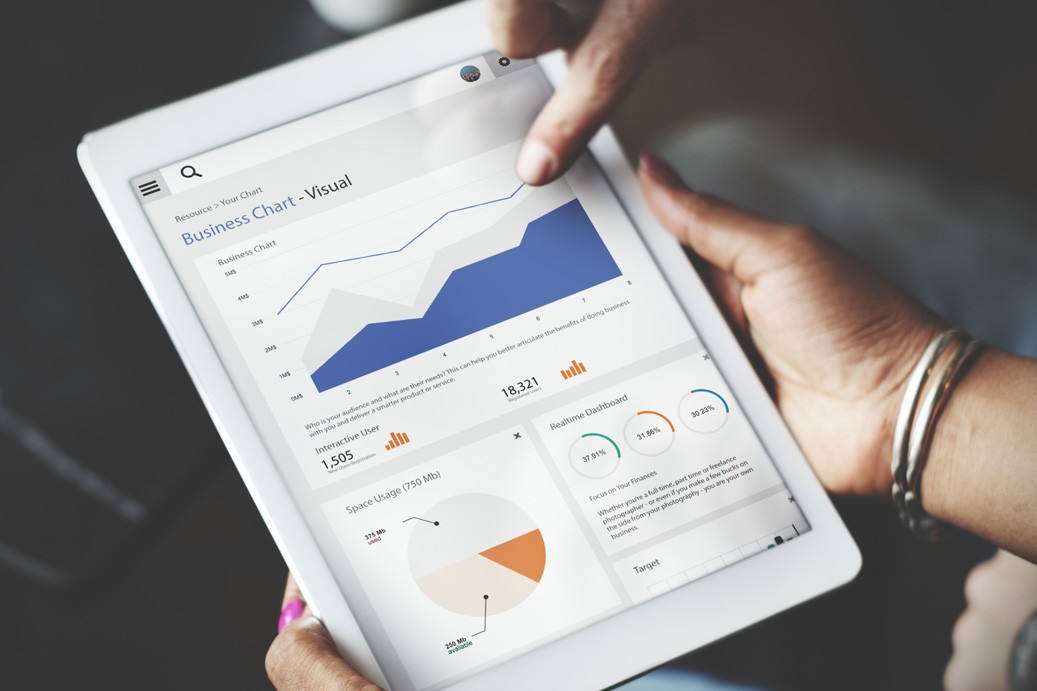
A comprehensive Google Analytics dashboard can offer an in-depth look into website traffic and visitor behavior, enabling you to make well-informed decisions as you build your sites and strategize to bring in more visitors. With the data it provides, you can evaluate how effective your efforts are at drawing in visitors and whether they’re successfully engaging with your site or not. Additionally, by keeping track of certain metrics such as page views, bounce rate, time spent on site etc., you can gain insights into how users are responding to your content and adjust web pages accordingly for improved results.
Google Analytics also enables webmasters to gain valuable insights into their website’s performance by analysing the data it collects. Through this analysis, they can uncover trends and pinpoint which marketing initiatives are successful in drawing visitors, how people use the site, where they are coming from, and how many of them are turning into leads or customers. This can then give companies a better idea of how to optimise their website according to their goals. Additionally, it also provides valuable information about the effects of technical changes on a website’s performance and can be used to track important key performance indicators (KPIs) related to SEO such as organic search engine rank, click-through rate (CTR) and unique visitor count.
Having access to this data allows businesses to adjust their content and deliver optimised experiences that keep visitors engaged, resulting in higher conversion rates. Additionally, it allows companies to monitor the activities of their competitors, thus allowing them to continuously refine and improve their SEO strategies for a competitive edge.
That’s why today, we’ll discuss how you can master your Google Analytics Dashboard and get to know the different KPI’s that you need to keep an eye on.
If you’re ready to learn more, then read on.

Mastering your Google Analytics Dashboard
It is important to have an in-depth knowledge of the Google Analytics Dashboard in order to properly manage and optimise a website or online store. This dashboard provides a wide range of user metrics such as page views, bounce rate, duration of sessions, referral sources and more. It even provides the ability to track how customers complete desired actions on the site like purchases and subscription sign ups. By tracking this data, businesses are able to get valuable insights about how well their website is performing which can then be used to adapt and improve strategies for achieving optimum results.
In order to properly analyse the data, it is important to understand the significance of each metric. Page Views measures the number of times visitors have visited a particular site; Session Duration tells us how long visitors remain on specific pages; Bounce Rate reveals when visitors land on one page and then exit quickly; Referral Sources tell us which websites are driving traffic to our site; and Conversion Rate provides insight into what percentage of user sessions resulted in desired actions such as making a purchase or signing up for an email subscription form.
Google Analytics offers businesses the ability to design customised reports based on various metrics to gain a deeper understanding of their website’s performance and growth over time. Not only that, but they can monitor which pages their visitors are interested in most and where there may be potential issues that could affect the overall user experience. These reports also provide valuable insight into campaigns, allowing companies to track whether special advertisements or promotional events managed to make an impact on how customers interact with the website.
Mastering the Google Analytics dashboard is incredibly beneficial for businesses as it provides insights into how users interact with their websites. By using this powerful tool from Google, businesses can make informed decisions on how to optimise the website for better outcomes such as increased website traffic and conversions. Optimising your site will help ensure that relevant customers can see it and ultimately bring in more revenue. It’s important to take full control of web presence by understanding user actions and making improvements with this valuable data. This allows businesses to maximise their ROI through enhancing website performance.
KPI (key performance indicator): Unique Visitors
Unique visitors are an important key performance indicator (KPI) for businesses to measure the success of their website. It helps businesses understand how many people have visited their website in a period of time, which allows them to track user engagement and identify areas of improvement. Unique visitors are important to track as it gives businesses insight into how effective their marketing efforts are and can indicate the level of interest in their services or products by potential customers.
Unique visitors can be tracked through tools such as Google Analytics, which provide detailed breakdowns that show how long users stayed on the website, what pages they visited, where they completed purchases or clicks through rates. This data helps companies optimise content and make changes based on user behaviour, allowing them to improve conversion rates and increase sales. Additionally, having a higher number of unique visits also improves SEO rankings as search engine algorithms take this metric into account when determining results pages for relevant queries made by web users.
Knowing and understanding this metric can also help businesses identify areas for improvement so that more people can discover them online.
Bounce Rate and Average Session Duration
Bounce rate and average session duration are two key metrics for measuring the effectiveness of a website. Bounce rate is the percentage of visitors that leave a website after viewing only one page, while average session duration is the amount of time visitors spend on a website before leaving. These metrics can be important indicators of how people interact with a site, what content they find most engaging, and other insights about user behaviour.
A high bounce rate could mean that visitors don’t find what they’re looking for quickly and easily on the website or that it looks outdated or unprofessional. On the other hand, if the average session duration is low, it could indicate that the visitors easily find whatever they need and move on without much interaction with the site.
Understanding these metrics can help business owners to make more informed decisions about optimising their websites in order to attract more customers, retain them better, and increase conversions. For instance, if there is a high bounce rate due to outdated-looking web pages, then businesses can work on improving their website design to make it more modern and attractive. Similarly, if pages are taking too long to load or navigation is confusing then businesses can revamp those areas accordingly to improve user experience so that visitors stay on longer.
Analysing both the bounce rate and average session duration will provide valuable insight into customer behaviour which allows businesses to adjust their strategies so as to further optimise their websites for increased traffic and higher sales.
User Acquisition
User acquisition refers to the process of attracting potential customers, users or visitors to a website or mobile application. The goal of user acquisition is to acquire active users who will regularly use the app or visit a website. User acquisition campaigns typically involve online marketing strategies such as search engine optimization (SEO), content marketing, pay-per-click advertising, social media marketing and other methods.
To increase user acquisitions, it is important for businesses to understand how their target audience searches for information and selects products or services within their niche. This knowledge can then be used to create relevant web pages and content that meets the interests of potential customers, increasing the likelihood of website traffic and conversions. It is also important for businesses to monitor their customer acquisition activities in order to review progress over time and make any necessary changes to their marketing strategies.
Ultimately, successful user acquisition relies on producing relevant content that resonates with targeted audiences in order to capture their attention and encourage engagement with the brand. Knowing this, businesses must ensure that they have an efficient system in place that allows them to track metrics related to user acquisition so they can monitor progress effectively. By using these practices together, businesses can more easily identify opportunities for improvement and make meaningful changes that will directly result in increased customer acquisitions.

Google Analytics Consulting Melbourne
Webplanners in Melbourne is an experienced Google Analytics consulting firm specialising in helping businesses everywhere get the most out of their digital presence. With a team of highly trained professionals and cutting-edge technology, we can provide tailor-made solutions to fit any business’s unique online marketing needs. From creating and analysing reports to optimising web pages for Search Engine Optimization (SEO), we offer comprehensive analytics consulting services that focus on helping businesses measure and improve the performance of their digital assets.
Google Analytics consulting from Webplanners equips businesses, big and small alike, with the necessary user experience data in order for them to take charge when it comes down to managing their own online presence. Our dedication towards making sure that each client has plenty of control over their customer engagement efforts makes them one of the best options when it comes choosing a trusted consultant for driving organic growth through modern analytics solutions in Melbourne.
Suggested Read: What Does Google Analytics 4 Mean for Your SEO Strategy?


